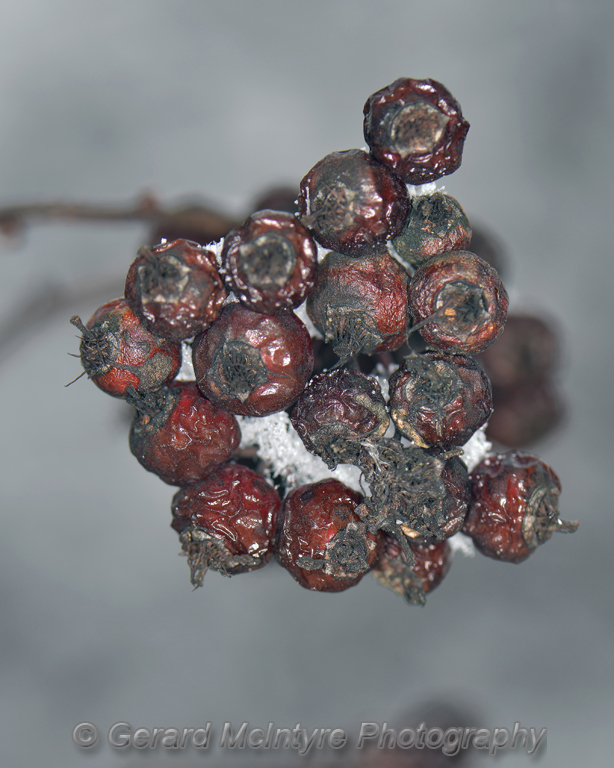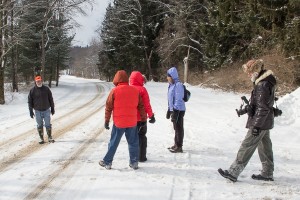Back to the main LINKS page
(Please leave a comment below if you wish to suggest additional names)
Back to the main LINKS page
(Please leave a comment below if you wish to suggest additional names)

Identifying winter trees? I often have difficulty identifying them in summer! It would appear that I’m not the only one, either, because several members of our WWP group came out in today’s modestly below-freezing temperatures and had an enjoyable and instructive walk with John Sly, one of Buffalo Audubon Society’s team of knowledgeable volunteers. Indeed, John was able to pass on so much information that it was a challenge to keep up.


Beaver Meadow Arboretum
Deciduous twigs opposite or alternate? If opposite each other then “MAD Horses” are responsible! (Maple, Ash, Dogwood or Horse Chestnut – a great acronym that should prove easy to remember.)
Compound leaves or simple? Well yes, this was a question about summer trees, not winter, but as we were apparently not willing to leave any leaf unturned, the questions were still answered.
Pines with needles in bundles? If in twos, it could be Red Pine or Jack Pine (though they are very different) but if the needles are in fives it is the remarkable Eastern White Pine – a tree whose timber caused ructions inthe build up to the Revolutionary War.
This wasn’t all, of course. There were still bark, buds and seeds to consider, not to mention the habitats in which each species found its favoured niche.
Prior to starting the walk, we had the opportunity to briefly look at at John’s own display collection of over 80 species of leaves, together with various seeds, pine cones, twigs and so on. Interestingly, when I asked him, he added that the leaves would keep their green colouration and remain usable for display for about 15 years.

Key little tidbits came out during this ‘classroom’ session, such as the indentations in some maple leaves being ‘U’ shaped, which indicated sUgar maple, and others being V shaped. John also passed around several of his older tree-identification books — mostly just printed with monochrome illustrations, unlike today’s brightly-coloured volumes — but showed us the detail in the typically larger illustrations, an aspect which spoke for itself.
During the first two-thirds of our walk, snow fell quite heavily, and this meant that those of us with DSLR cameras which were not weather-proof had to be cautious about the water getting in. And some of us (meaning me!) had forgotten to to pack our waterproof compact camera, too, so several photo opportunities were lost!
What started out, perhaps, as just a good reason to get outside and have a winter walk, turned out to be extremely interesting and I,
 for one, will look for other opportunities to go out on John’s various guided walks because — to use a well-known phrase — he’s a man who has clearly forgotten more about trees than I will likely ever know. And just to end the walk on a high note, the sun came out and graced us with its presence on our way back to the BAS buildings.
for one, will look for other opportunities to go out on John’s various guided walks because — to use a well-known phrase — he’s a man who has clearly forgotten more about trees than I will likely ever know. And just to end the walk on a high note, the sun came out and graced us with its presence on our way back to the BAS buildings.
Finally, my thanks to Gerry McIntyre, for sharing some of his photos with us in this blog.
Eddie Wren
Through the URL below, you can view a video collection featuring bugs and insects in amazing close up, selected by insect expert and TV presenter George McGavin, with Goliath spiders, killer centipedes, ants and moths. By no means everyone’s favourite animals bugs — encompassing true bugs and other creepy crawlies — hold a special place in George’s heart and led him to an academic career at Oxford University. Having worked as scientific advisor on Attenborough’s “Life in the Undergrowth,” George became a presenter in his own right. He is now loved and admired for his passionate engagement with invertebrates, whether in the jungles of Bhutan or the back gardens of One Show viewers in England.
http://www.bbc.co.uk/nature/collections/p00bf3fy
Through the depths of winter in Buffalo (NY) I tend to watch a lot of wildlife documentaries, and one that I saved on the DVR a couple of years ago does tend to make a regular appearance.
‘Wildflowers: Seeds of History’ is the story of Lady Bird Johnson’s flower conservation work in Texas, and some of the KLRU footage is wonderful.
You can view the whole episode (58 minutes) online, at: http://www.klru.org/episode/wildflowers-seeds-of-history/wildflowers-seeds-of-history/
The Lady Bird Johnson Wildflower Center websits is at: http://www.wildflower.org/
uswildflowers.com provides a page of links for the state at: http://uswildflowers.com/stateref.php?State=TX
Eddie
Western New York debut of National Geographic’s “POLAR OBSESSION: PHOTOGRAPHY FROM THE ENDS OF THE EARTH”
Tickets are $25, although a VIP package is available for $75 per person and includes a one-hour meet-and-greet with Mr. Nicklen, refreshments, polar-themed gifts and preferred seating.
For details of the speaker and/or to buy tickets, go to http://www.paulnicklen.com/speaking-engagements and scroll down.
Tickets are also obtainable at: https://tickets.bpo.org/public/show.asp
Excerpts from comments about Paul’s photography:
“In each generation of wildlife photographers, a handful emerge as the standard bearers. They show us the natural world in a way we have never seen it before. Paul Nicklen is just such a photographer. His images have presented the mysterious underwater world of the frozen deep not as an icy silent landscape but as a rambunctious, lively street scene–think of him as the first underwater ‘street’ photographer. His photography has brought us right up close to shy albatrosses, swimming polar bears, propelling penguins, massive manatees, and the elusive spirit bear–to name just a few of his subjects. Paul’s training as a biologist, his exciting presentation style and his eye-popping photos make every lecture not just an educational evening but an inspirational event for the entire audience.” – M. Mulvihill
“Had a great time. Really enjoyed the presentation! As an avid amateur photographer, Paul’s talk cured me of any desire I ever had to Shoot for National Geographic. The lengths Paul goes to to get his amazing shots are just incredible. Paul dedication to his craft, his passion for the environment and his presentation style made for an evening we will not forget for a long time.…”
In a susequent addition to this topic, on March 2, I have added details of Paul Nicklen’s book ‘BEAR — The Spirit of the Wild’ (click to go to that page) .
These are three, 6-minute slideshows from international photo competitions hosted by the BBC. The final one has nothing to do with wildlife photography, so it is not quite in context with this blog, but either way I hope you enjoy them and gain inspiration:
Wildlife wonders – creatures up close: http://www.bbc.co.uk/news/science-environment-25763028
Glorious greenery – winning garden [and wildflower] images: http://www.bbc.co.uk/news/science-environment-26065140
Top travel photos from around the world: http://www.bbc.co.uk/news/magazine-23226029
Back to the main LINKS page
__________________________________________
A Year in Oatka (Jim Adams)
Butterflies & Moths in Individual WNY Counties (BaMoNA)
Chirps & Cheeps (Sue Barth)
The Nature Watch website (Gerry Rising)
Nature’s Window (Timothy McIntyre)
Wildlife Photos by “November Gale”
__________________________________________
Please feel free to suggest futher links in the comments, below. (Relevant ones may then be moved into this main list.)
UNDER DEVELOPMENT: This page [will be] one of several dedicated to relevant links but split into the manageable sections shown below (click to follow):